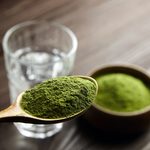Organic Foods: The debate
Should we spend the extra money for organic foods? Experts from each side of the debate present their arguments
The Benefits of Organic
Andy Hammermeister represents the Organic Agriculture Centre of Canada (OACC), Nova Scotia Agriculture College
Every day we make choices about what we eat and how we live. Will it be a salad or a burger? Should I drive my car or walk? Now we ask ourselves, “Should we be buying organic food?” As consumers, we have great influence on every business through the food chain, from the farmer to processors to local grocery stores. So every time we buy organic we are, in effect, voting with our dollars. Most shoppers say they buy organic food for reasons of personal or family health, the environment and/or animal welfare. Are these valid reasons for buying organic?
Let’s face it, everything we do in our lives involves some level of risk, whether it’s crossing a street or running with the bulls. The rules or standards for organic agriculture and food are designed to take a precautionary approach. That’s not to say that non-organic food isn’t safe. Our food system is carefully regulated, whether it is organic or not. However, just as crosswalks are used to reduce the risk associated with crossing the street, organic has developed standards intended to minimize risks associated with agriculture and food.
Until recently, claims could not be made about the benefits of organic production systems or products. In the UK, however, the British Code of Advertising has now accepted 22 claims that can be made about organic food.1. These claims cover everything from pesticides, food additives, fats, antibiotics, vitamins and minerals, genetic engineering, animal welfare, wildlife and the environment. These claims are supported by a growing body of research that has been designed to compare organic foods and production systems with other systems.2.
The science behind organic agriculture is developing quickly (www.oacc.info) as people and policy makers are paying more attention to health and the environment. For example, there is increasing evidence of risks associated with pesticide residues in food.3. We now have scientific data showing that organic foods contain fewer kinds of pesticide residues and at lower concentrations.4. Organic also restricts the use of most chemical additives in foods. However, scientists cannot easily make direct links between pesticide residues or additives and risks to human health As a result, the organic standard takes a precautionary approach, and severely restricts the use of pesticides and additives. And the standard works; eating organic food has been shown to reduce pesticide intake in children.5.
Agriculture in general has a big impact on the plants and animals that would naturally live on the land. We can’t entirely avoid these impacts but we can try to minimize them. Compared with conventional farming, organic performs at least as well as non-organic and in many ways better. Synthetic pesticides, fertilizers and confined livestock operations are not permitted in organic production. This means that there is lower risk of pesticides, nutrients, manure, and antibiotics affecting the soil, ground water, rivers, lakes, atmosphere and the life within them.6. It still means that farmers must be responsible for managing what happens on their farm. Overall, organic farming also supports more wildlife than non-organic farming.7.
Organic farming also uses much less energy than conventional agriculture, mostly because it doesn’t use nitrogen fertilizer.8. The Rodale Institute has reported that organic farming systems use 30% less fossil fuels than other farming systems.9. They have also found that organic farming tends to hold more carbon in the soil, reducing carbon dioxide emissions. Carbon dioxide is an important greenhouse gas that contributes to climate change.10.
So aside from reducing risk, is organic food more nutritious? The claim being made in the UK is “No food has higher amounts of beneficial minerals, essential amino acids and vitamins than organic food.” Research from around the world has supported this statement. 11. There is not always a difference between organic food and other food, but when there is a difference, organic foods do have higher amounts of these beneficial substances.
We as consumers face difficult choices every day. Many of those choices involve balancing the risks and benefits of our activities. Research is increasingly showing that buying organic reduces many risks associated with agriculture and food while also providing benefits. Farmers and food processors will respond to consumer demand; they will use fewer pesticides, fertilizers, additives, antibiotics etc. if that is what the consumer wants. It is our responsibility as a consumer, however, to be prepared to pay more for our food so that farmers can change their practices.
|
1. Soil Association Information Sheet 11/24/2005 (version 4) www.soilassociation.org 2. Shane Heaton/Soil Association, 2001, Organic Farming, Food Quality and Human Health, www.soilassociation.org 3. For a review see: www.organiccenter.org/reportfiles/PESTICIDE_SSR.pdf 4. Food Additives and Contaminants, 2002, 19:427-446. 5. Environmental Health Perspectives, 2006, Volume 114(2): 260-262. 6. Dabbert, S. 2006. Measuring and communicating the environmental benefits of organic food production. Online. Crop Management doi:10.1094/CM-2006-0921-13-RV. www.plantmanagementnetwork.org/pub/cm/symposium/organics/Dabbert/ 7. Journal of Applied Ecology, 2005, Volume 42 (2): 261-269. 8. Bioscience, 2005, Volume 55(7): 573-582 9. Rodale Institute. strauscom.com/rodale-whitepaper/ 10. Nature, 1998, Volume 396:262-265. 11. For more information see: oacc.info/consumers/health.asp |
Is Organic Better?
By Jackie Fraser
Jackie Fraser is the executive director of AGCare (Agricultural Groups Concerned About Resources and the Environment)
Organic food generally costs more. That might be worth it, if organic food was healthier or more environmentally friendly. However, it’s not. It’s more expensive, and it’s no better for you than regular food….which, besides being reasonably priced, is more nourishing than ever. We are living longer and healthier lives, thanks to modern medicine and modern food production.
Organic food is not healthier
Natural toxins and bacteria are the biggest threats to food safety 1. For example, recent food scares, such as botulism in organic carrot juice and spinach contaminated with E.coli 0157:H7, could happen to either organic or non-organic food 1. If anything, organic food tends to be more susceptible to higher rates of pest damage 2. Pests open doors and create pathways for toxin-causing fungi, such as aflatoxins. These toxins are natural, but they can be deadly.
In Canada, all foods, organic and non-organic, must meet the same inspection and food safety standards, such as pesticide residue limits 1. The Canadian Food Inspection Agency is responsible for monitoring pesticide residues on the Canadian food supply. Over the past several years, it’s consistently shown that more than 99 per cent of the food produced in Canada falls within its standards 3. It’s worth noting most non-organic foods (about 80 per cent) have no residues whatsoever. Farmers are trained to use pesticides responsibly to ensure that residues do not pose a health risk to consumers 4.
Studies on nutritional content have been inconclusive. Nutritional content is more dependent on other factors, such as freshness, livestock breed, diet and age, plant variety, and soil nutrients, than whether or not the farmer used pesticides.
Organic food is not better for the environment
All farmers must treat the environment with respect, if they are to be successful in the long term. Their families live, work, and play on their farms. Their livelihoods depend on the wise and responsible management of resources, such as soil, water, air, and biodiversity. However, only 1.5 per cent of Canadians farmers grow organic food 5.
In fact, virtually all farmers employ the same environmentally responsible techniques as organic farmers; they simply have a wider range of options to manage pests and disease. For example, farmers have long switched crops from field to field, called “crop rotation,” to reduce pest pressures and enhance soil health. That way, they can use less pesticides and fertilizer. In fact, Ontario’s farmers have reduced their use of pesticides by 52% in the past twenty years as a result of better technologies and education 6.
Using the full range of options to increase crop yields, including pesticides and commercial fertilizers, is better for the environment because less land is required to grow food for a growing population. This leaves more land for wildlife habitat and natural areas.
Buy local
To be truly environmentally and health conscious, consumers should pay close attention to where their food comes from. Buying local means reducing the amount of fossil fuel used to transport food. Local food is fresher, which means it probably tastes better and is more nutritious. The vast majority of organic food is imported. Is it better for the environment to have a truckload of organic food shipped all the way from California or overseas? Isn’t it better buying it fresh and local, whether it is organic or non-organic?
Decide for yourself
The best way to decide if organic food or regular food is better is to do some research, try both, and judge for yourself. If it is locally grown or raised, you can be very confident that it is safe and produced in an environmentally responsible manner, whether it’s organic or regular.
1. Food Safety Network, www.foodsafetynetwork.ca
2. Winter, C.K., and S. F. Davis. 2006. Organic Foods. Journal of Food Science. V.71 No.9
3. Canadian Food Inspection Agency, www.inspection.gc.ca/english/toce.shtml
4. Ontario Pesticide Education Program, www.opep.ca
5. Agriculture and Agri-Food Canada, ats.agr.ca/supply/factsheets/3313_e.pdf
6. Agricultural Groups Concerned About Resources and the Environment (AGCare). www.agcare.org



